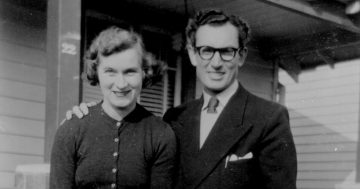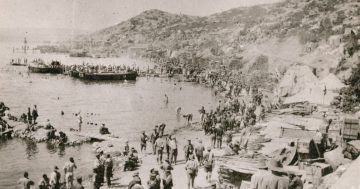Reviewed by Rama Gaind.
By June Factor, Melbourne University Press, $39.99.
 Here is an illuminating insight into a forgotten history of the remarkable contribution of non-British subjects to Australia in World War II.
Here is an illuminating insight into a forgotten history of the remarkable contribution of non-British subjects to Australia in World War II.
It’s about men in the Australian Army’s Employment Companies. The story of the four thousand Australian soldiers who signed up for service and were never to fire a weapon. Their work was essential for the war effort, but they were ‘aliens’-non-British subjects – many born in other countries. They created a multicultural force in the Australian Army – long before the word ‘multicultural’ had entered the nation’s lexicon.
Factor, a well-known and highly-respected folklorist, social historian and writer, elaborates on a major part of Australia’s military history that’s been largely forgotten.
It’s about “the experiences of men like my father, many recent immigrants and refugees, who willingly or reluctantly joined the Australian Army and found themselves in the military’s Employment Companies (also called Labour Companies).”
“At the core of this book are experiences of the participants: the ‘aliens’ whose military task was the hard physical labour needed to maintain the war effort and support the fighting forces.”
They were a heterogeneous lot: scholars and peasants, musicians and factory workers, communists and royalists, Jews and Catholics, animists and atheists. Diverse in nationality, and in their capacity to undertaking demanding physical work, fastidious or rough-and-ready, they lived in tents and huts in crowded proximity.
They all laboured under standard strict Army regulations, living in tents and huts, loading and unloading trains, working the wharves, cutting timber and transporting goods.
Factor considers it her good fortune to have sat at kitchen and dining-room tables in many homes, talking to the old about their youth, to the children about their fathers.
Memoirs, letters, photos and other documents from those long-ago days – together with the vast resources at the Australian War Memorial, National Archives and various other record depositories – have provided layers of knowledge and understanding of these times gone by.











